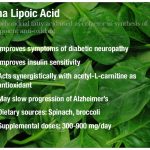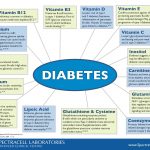APPLE CIDER VINEGAR
Insulin Resistance
These data indicate that vinegar can significantly improve insulin sensitivity in insulin-resistant subjects. Acetic acid has been shown to suppress disaccharidase activity and to raise glucose-6-phosphate concentrations in skeletal muscle
Type II Diabetes
In 2004 the American Diabetes Association published a study in the journal Diabetes Carethat indicates that vinegar increased overall insulin sensitivity 34% in study participants who were insulin-resistant and 19% in those with type 2 diabetes. That means their bodies became more receptive to insulin, allowing the hormone to do its job of getting sugar out of the blood and into the cells. Blood sugar and blood insulin levels were lower than normal in the insulin-resistant participants, which is good news. Worth noting, the control group (did not have diabetes or a pre-diabetic condition but were given the vinegar solution) also experienced a reduction in insulin levels in the blood. These findings are important because in addition to the nerve damage caused by consistently elevated blood sugar levels, several chronic conditions, including heart disease, have been linked to excess insulin in the blood over prolonged periods of time.
Researchers at Arizona State University published a preliminary study in Diabetes Care, which examined people with type II diabetes and found that taking two tablespoons of apple cider vinegar at bedtime had a favorable impact on blood glucose levels the next day. Other studies have found that vinegar can lower the post-meal rise in glucose. The acetic acid in vinegar is thought to slow starch digestion and reduce the glcyemic index of starchy foods. A small 2005 study compared the effect of vinegar with white bread on blood glucose and insulin levels. Researchers found that taking vinegar with white bread results in lower post-meal blood glucose and insulin levels and higher levels of satiety. The American Diabetes Association quoted this 2005 study stating that “adding a little vinegar to the diet may help you feel full longer. It may also help control blood glucose and insulin levels.”
Obesity and Weight Loss
It has been claimed that ACV breaks down fat and is widely used for a metabolism boost and to lose weight. Some say that the pectin, enzymes, vitamins, or potassium may help with weight loss, but there is no reliable research proving that the contents of ACV can influence the body’s metabolic rate or make the body “burn fat” faster than it normally would.
ACV may affect satiety by lowering the glycemic index of carbohydrates eaten at a meal. The 2005 white bread study mentioned above indicates that ACV increases the feeling of being full and satisfied. A 2006 study published in the Journal of the American College of Nutrition stated that vinegar is effective at reducing the glycemic effect of food, an effect that makes people eat less and feel more satisfied. A 2007 confirms that ACV acts by reducing the gastric emptying rate, which makes sense why it would increase the feeling of being full and satisfied, which would facilitate a lower calorie intake and thus weight loss.
Vinegar is tasty and low in calories, serving as a great replacement for high fat ingredients. Compare the 30 calories in ½ cup with the nearly 800 calories in half a cup of mayonnaise, and you have huge calorie reduction potential with substituting it as an ingredient and condiment.
Cancer and other illness
Contrary to what you might think of vinegar, ACV is actually alkaline-forming in the body. When the human body digests nutrients, it undergoes a process called oxidation, which is similar to burning and the end result is either alkaline or acidic. If ACV was to be “burned”, what is left over becomes ash which has an alkaline pH when dissolved with water. It is widely thought by natural practitioners that cancer develops and thrives in an acidic environment. This is a controversial topic and many medical doctors claim there is a lack of scientific evidence proving this theory; however we found this study that demonstrated that an acidic intra-tumor environment may markedly perturb tumor cell proliferation and tumor growth.
Other illnesses such as gout and Candida (yeast) thrive in an acidic environment. ACV’s alkalizing effect may be helpful in keeping your pH alkaline and preventing these illnesses, which could in turn help to combat fatigue, cold and flu, and a weak immune system.
https://urbanclinic.net/superfoods/apple-cider-vinegar/
Vinegar Improves Insulin Sensitivity to a High-Carbohydrate Meal in Subjects With Insulin Resistance or Type 2 Diabetes
Carol S. Johnston, PHD, Cindy M. Kim, MS and Amanda J. Buller, MS
The number of Americans with type 2 diabetes is expected to increase by 50% in the next 25 years; hence, the prevention of type 2 diabetes is an important objective. Recent large-scale trials (the Diabetes Prevention Program and STOP-NIDDM) have demonstrated that therapeutic agents used to improve insulin sensitivity in diabetes, metformin and acarbose, may also delay or prevent the onset of type 2 diabetes in high-risk populations. Interestingly, an early report showed that vinegar attenuated the glucose and insulin responses to a sucrose or starch load (1). In the present report, we assessed the effectiveness of vinegar in reducing postprandial glycemia and insulinemia in subjects with varying degrees of insulin sensitivity.
Our study included nondiabetic subjects who were either insulin sensitive (control subjects, n = 8) or insulin resistant (n = 11) and 10 subjects with type 2 diabetes. Subjects provided written informed consent and were not taking diabetes medications. Fasting subjects were randomly assigned to consume the vinegar (20 g apple cider vinegar, 40 g water, and 1 tsp saccharine) or placebo drink and, after a 2-min delay, the test meal, which was composed of a white bagel, butter, and orange juice (87 g total carbohydrates). The cross-over trial was conducted 1 week later. Blood samples were collected at fasting and 30 and 60 min postmeal for glucose and insulin analyses. Whole-body insulin sensitivity during the 60-min postmeal interval was estimated using a composite score (2).
Fasting glucose concentrations were elevated ∼55% in subjects with diabetes compared with the other subject groups (P < 0.01, Tukey’s post hoc test), and fasting insulin concentrations were elevated 95–115% in subjects with insulin resistance or type 2 diabetes compared with control subjects (P < 0.01). Compared with placebo, vinegar ingestion raised whole-body insulin sensitivity during the 60-min postmeal interval in insulin-resistant subjects (34%, P = 0.01, paired t test) and slightly improved this parameter in subjects with type 2 diabetes (19%, P = 0.07). Postprandial fluxes in insulin were significantly reduced by vinegar in control subjects, and postprandial fluxes in both glucose and insulin were significantly reduced in insulin-resistant subjects (Fig. 1).
These data indicate that vinegar can significantly improve postprandial insulin sensitivity in insulin-resistant subjects. Acetic acid has been shown to suppress disaccharidase activity (3) and to raise glucose-6-phosphate concentrations in skeletal muscle (4); thus, vinegar may possess physiological effects similar to acarbose or metformin. Further investigations to examine the efficacy of vinegar as an antidiabetic therapy are warranted.

Figure 1—
Effects of vinegar (□) and placebo (⧫) on plasma glucose (A–C) and insulin (D–F) responses after a standard meal in control subjects, insulin-resistant subjects, and subjects with type 2 diabetes. Values are means ± SE. The P values represent a significant effect of treatment (multivariate ANOVA repeated-measures test).
References
http://care.diabetesjournals.org/content/27/1/281.full
http://www.naturalcurestome.com/apple-cider-vinegar.html
Drinking Apple Cider Vinegar with Baking Soda, Stevia and Cinnamon
yes my Wife has lost 145 lbs by just drinking this cocktail everyday. In just a year and a half. You would be surprised the bicarbonate soda alone adds oxygen which made me incredibly strong I’m 51 soon to be 52 and bench press 400 lbs starting off with 200 lbs . You would be amazed at my muscle mass now just by drinking sodium bicarbonate before working out I’m in beast mode and hardly getting tired and recovery well I workout everyday off on Saturday and Sunday. It took two weeks and my lean muscle came through every where try it. be blessed






